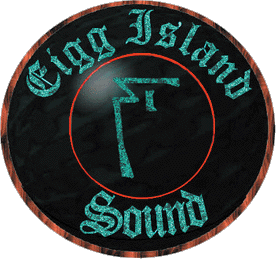|
Music on the Internet
Once your CD is done you probably want to advertise your
music using the Internet. Artists often advertise or sell
their music by offering a digital download of their sound
and the MP3 format has become the Internet music format.
The MP3 format compresses
your music into small files that can be easily downloaded
by listeners and shoppers from sites such as MP3.com,
Rolling Stone, IUMA and a host of other sites. While the
compression used by the MP3 format does alter the quality
of your music, the reduction in file size for your
listeners is worth the trade off.
MP3 or Not
Now the big question – to MP3 or not. The decision about
whether or not to offer your music in the MP3 format is a
personal one. I have worked with artists that believe that
offering full MP3 versions of their music hurts their
sales. Because bands and artists often offer the best song
off their CD as a free download, they feel that the
listener will not be converted to a CD buyer. Other
artists see this as a way to increase sales as well as
visibility and name recognition. Even if you do not want
to offer free full versions of your songs as MP3s, you can
still use the MP3 format to create a short 1 or 2 minute
taste of your music to be downloaded.
Nuts and Bolts of MP3
Creation
How you choose to use the MP3 format is up to you, but the
nuts and bolts of creating them remains the same. Some
sites will offer to convert your tunes to MP3s but it is
definitely one of those things you can do yourself.
To create an MP3 of your
tunes, you will need to have your music on a CD to
transfer it to a computer. You then pull your music off of
the CD and onto the computer in a process called
"ripping." The tunes are then
"encoded" into the new MP3 format. There are a
number of software applications that do these things for
you. They are called "rippers" and
"encoders." Often vendors bundle these functions
into a single application. These applications are
available for purchase on the Internet. Most of the free
encoders that used to be available on the Internet have
disappeared due to enforcement of an MP3 patent. Now
encoding applications require a small fee of about $20, so
that the companies can pay the required MP3 licensing fee.
The quality and ease of use of these applications varies
greatly so you might want to ask around and/or read
reviews. Included at the bottom of this article are links
to additional articles on creating MP3s and some of the
MP3 rippers and encoders available on the Internet.
If you already use digital
recording software such as WaveLab (Steinberg
USA), you might want to check about the inclusion of
tools for saving in MP3 format.
The standard MP3 format is
128 kilobits or 128 Kbps, which produces file sizes of
around 1 MB for every minute of music but if you are
uploading to an MP3 site check their specific
requirements.
Most of the rippers and
encoders are fairly easy to use so follow the instructions
or use the help files.
Sites for MP3 Upload
Once your MP3 has been created, you will want to upload it
to one or more of the MP3 download sites such as:
These sites allow you to
create an artist or band page with links to download your
music. Each site has different requirements about how to
upload and/or link to your songs.
Pay for Play
Another aspect of MP3s is the “pay to play” option
offered by some MP3 web sites. This pay to play option
lets you collect fees based on the number of downloads of
your music. Not all sites have this option but popular
sites such as MP3.com and
Ampcast do. Check out
the artist revenue statistics to see how other artists are
making money on downloads.
Resources
The following list is provided as a sample of some of the
available MP3 rippers and encoders.
Other MP3 articles:
|
